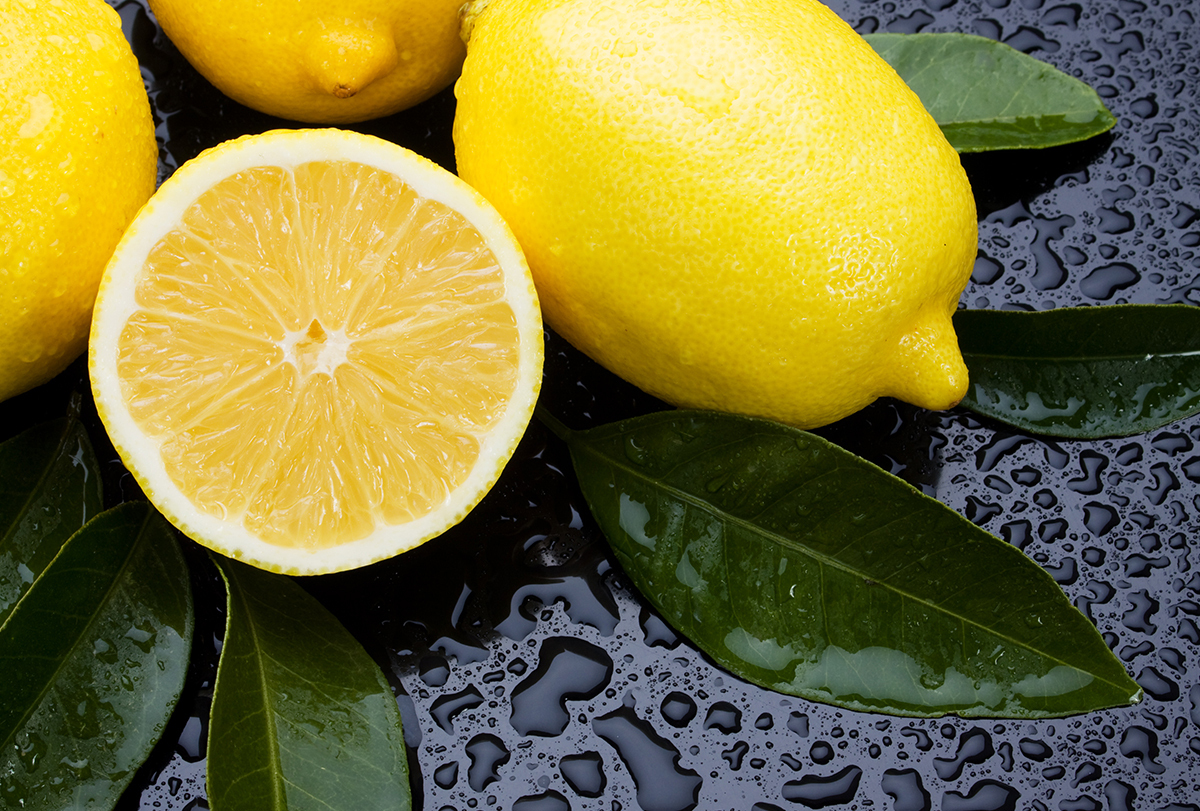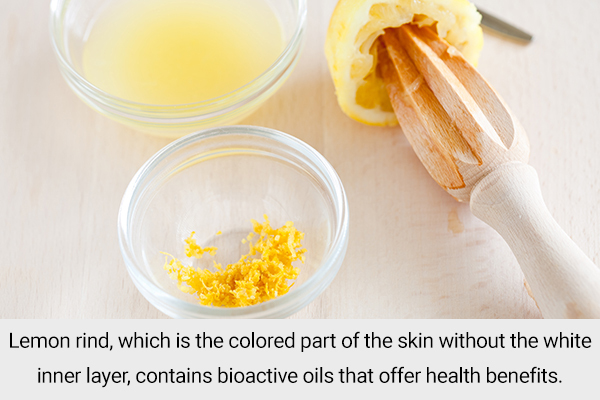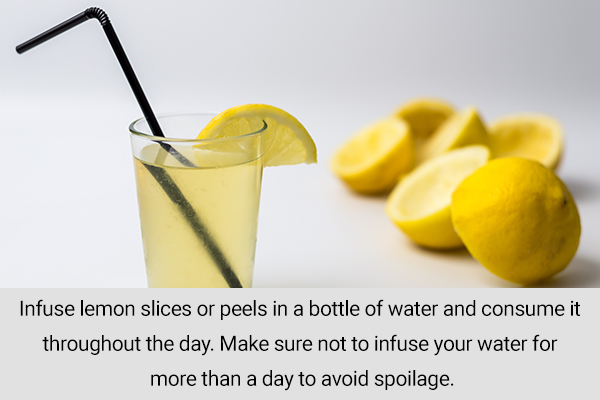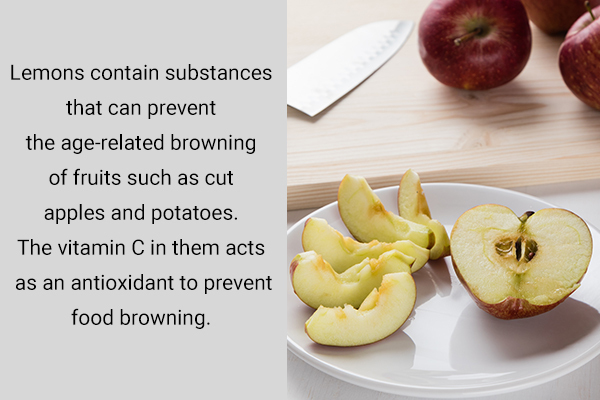In this article:
Lemons are yellow citrus fruits from trees that have evergreen leaves. In addition to using the juice of the fruit to season foods, lemon essential oil obtained from the skin is also used for its many health benefits.

In many different cultures, lemons are used to treat several ailments including cough, cold, sore throat, and kidney stones. (1)
But aside from the traditional use of lemon juice to benefit health, other parts of the fruit that are often discarded have many other unconventional uses, thus preventing waste. (1)
Top Lemon Hacks to Try
Here are some beneficial uses of lemon you may not have heard of before.
1. Make candy
Among its many other uses, sugar is a preservative for fruits and vegetables. (2) Lemon slices can be cooked down in sugar syrup and subsequently dried. The dried lemon slices can be used in baking, as dessert toppers, and simply as candy.
2. Prepare food seasoning with rind

Lemon rind, which is the colored part of the skin without the white inner layer, contains bioactive oils that offer health benefits. (3)
Use a food scraper or fine grater to grate the outer skin carefully, avoiding the inner white layer. You can use this fresh zest in cooking or dry and mix it with salt and black pepper to make lemon pepper seasoning.
3. Make homemade cheese
Lemon juice is a rich source of naturally occurring citric acid, (1) which can be used to coagulate milk to prepare a non-rennet-based cheese called paneer. Paneer is popularly used in South Asian households and can be a good source of protein for vegetarians. (4)
Paneer can be used to make vegetarian kebabs (alternatives to meatballs), prepare gravies, or top salads.
4. Infuse water with lemons

A lot of people do not like to consume plain water. To tackle that, dietitians recommend adding fruits and herbs to water to improve its taste and make it micronutrient rich as water-soluble components from the added fruits can leach into the drinking water.
Lemon peel contains limonene, a potent antifungal. Its other components have also been reported to be useful in cancer prevention. (5)
Infuse lemon slices or peels in a bottle of water and consume it throughout the day. Make sure not to infuse your water for more than a day to avoid spoilage.
5. Treat your scalp
Lemon juice is believed to treat some scalp disorders such as dandruff and scalp acne. (6) It may also be beneficial in relieving the itching accompanied by dandruff. (7)
Rub a used wedge of lemon into your scalp 20 minutes before shampooing to get rid of the itching and balance scalp pH.
6. Brighten nails
Another one of lemon’s uses is its ability to “bleach” or lighten skin. (8) Though it is not recommended to use lemon juice directly on the skin, it can be used to polish and brighten nails.
Simply rub a used wedge of lemon on your nails, let it sit for a few minutes, and then wash it off with warm water. You can do this as part of a home manicure regimen.
7. Aromatherapy
Lemons have a pleasing scent and lemon oil can be used for aromatherapy purposes.
A study reported that the use of lemon essential oil by inhalation was effective in reducing the symptoms of nausea and vomiting in pregnant women. (9)
Lemon oil can be used in an aromatherapy diffuser or simply inhaled for its effectiveness.
8. Prevent browning of foods

Lemons contain substances that can prevent the age-related browning of fruits such as cut apples and potatoes. The vitamin C in them also acts as an antioxidant to prevent food browning. (10)
Add half a cup of lemon juice to a liter of water and soak your cut fruits before storing them in the fridge.
9. Whiten clothes
Lemon’s whitening property, as discussed earlier, can also act as a bleaching agent for clothes. Add lemon juice to hot water and soak your clothes in it before washing.
10. Clean surfaces
Lemon contains antimicrobial compounds effective against common disease-causing microorganisms. (11) This property of lemon can be used to clean household surfaces.
You can add lemon peels to a bottle of water and let it soak overnight before using it as a toxin-free surface cleaner for the kitchen and children’s desks.
Most-Asked Questions
Can I freeze my extra lemons?
Lemon can be juiced and zested (removal of zest using a grater), and both components can be stored separately. This will make it easy to use them once desired.
What dishes can I make using lemons?
Lemonade, lemon iced tea, lemon cakes, and lemon meringue pie can all use lemons.
Final Word
Foods available from nature are abundant in nutrients but also contain important components in parts that are normally discarded. By using natural foods unconventionally, you make sure you use your food to its full potential and also reduce waste.
Lemons are one such fruit. It can be used as a natural bleaching agent to brighten nails and whiten clothes and as an antimicrobial agent to clean surfaces. Lemon essential oil is an effective aromatherapy agent because of its pleasant smell, and the rind can make a delicious flavoring agent.
- Was this article helpful?
- YES, THANKS!NOT REALLY


